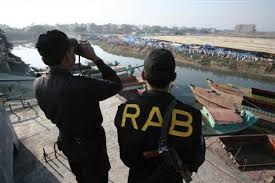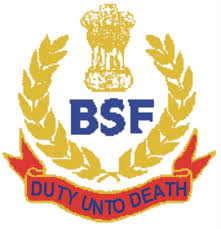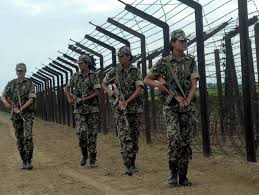their banks.
forget about offering them loan, support, training, education.
best wishes.
khoda hafez.
To: alochona@yahoogroups.com
From: Ezajur@yahoo.com
Date: Mon, 20 Dec 2010 06:50:50 +0000
Subject: [ALOCHONA] Re: DER SPIEGEL: Microfinance Guru under Pressure - Muhammad Yunus Fights to Save His Reputation
Dear Alochok WazedIndeed. There is in fact nothing new in this article as it is simply conveying information for its readers - which it should do. It is hardly an investigative piece. I agree with you that the article exaggerates the pressure that is on Grameen. Nevertheless, it is true, Grameen and Dr Yunus are under pressure.Dr Yunus has built an economic model that is, rightly, subject to challenge. It should be challenged as people's lives depend upon it. And, on the world stage, Dr Yunus and Grameen are meeting such challenges as best they can. Let us look at the challengers listed by Der Spiegel:1. Pure Donors - fair enough, some would rather give to the poor without repayment, its part of the debate.2. Anti Globalists - fair enough, thats a debate worth having and Grameen is part of the economic landscape. 3. Those Against Vicious Copycat Lenders - fair enough, Grameen too is against such copycat criminalsAll the above are part and parcel of building, defending, improving and correcting an economic model. It is the stuff with which Dr Yunus lives everyday. He needs no wake up call on these matters. His active engagement with these matters does exist and his engagement enhances both himself and the economic model.Now. Should the economic model fail what is to be said for Dr Yunus? He should be vilified for trying to build a new economic model for the world's poorest - and failing? No. No one will vilify him. Rather, he should be thanked for trying and the lessons learnt from the model's successes and failures would be the cornerstone of some new economic model.Dr Yunus and Grameen are fine.Now look at Der Spiegel's fourth challenger to Dr Yunus - 4. Jealousy of fellow Bangladeshis - particularly politicians empowered only by their family name, and more specifically, the jealousy of the current Prime Minister of Bangladesh, Sheikh Hasina. BLOODY DISGUSTING!And, dear Wazed, this is the measure of anyone's approach to Bangladesh - in Der Spiegel's article, is Bangladesh most offended by Dr Yunus or by Sheikh Hasina? If Dr Yunus, then one is blind, wicked or waiting to be pointed in the right direction. If Hasina, then one is in already facing the right direction.The truth is simple. The truth is clear. There is no escape. It is to be found safe under every rock and perched openly atop every tree. These two ladies are the main obstacle to the redemption of Bangladesh. Those who delay or deny it are living proof that a little education is a dangerous thing.I admire very much your writing and the positions you take. Let us all,including chagols and fagols like me, join hands and attack those who seek to maintain status quo politics in Bangladesh and prevent the reform and enlightenement of AL and BNP. We cannot fail for the evidence is plain, the case already made and every day brings upon us fresh stupidity and wickedness. Our country is beautiful and the best people in our country are humble, poor and gentle. We fight for them. I have no doubt that Mujib and Zia, now blessd for so long by Allah's mercy, would agree with us and not their wife or daughter, nor their cadres, nor their worshippers.Best wishesEzajur RahmanKuwait --- In alochona@yahoogroups.com, Wazed Khondkar <wkkhondkar@...> wrote:
>
> This is hardly exposing anything new that we do not already know. Let me see now, this is published in an anglo-saxon news paper/magazine so it must be worthy of reading and it must have credibility.
>
> This report suggests that Dr. Yunus is under massive pressure - oh really - don't tell me, let me guess, Dr. Yunus has a got Swiss bank account with huge fund diverted from the Grameen bank. His family members are all multi-millionaires living in Swiss chalets just like many corrupt criminals, drug dealers, contract killers and dictators from all over the world.
>
> Grameen bank as a business model is not perfect but at least it tried to help the people of Bangladesh long before it become fashionable in the western media or (dare I say) with our politicians. I remember when I was in Bangladesh few years ago, my sister tried to open an account with the HSBC and she was asked to deposit a minimum of 1 lakh taka if she wished to open an account.
>
> Even in the UK there are millions of people who do not have bank accounts because the banks do not consider them credit worthy and they can not afford the cost of banking. As the division between rich and the poor getting wider there is an underclass of people who are prayed on by loan sharks, which is completely unregulated.
>
> News on the BBC website reported that Dr. Yunus has been exonerated.
>
> http://www.bbc.co.uk/news/world-south-asia-11947902
>
> If our politicians were looking after the interest of Bangladesh then we would not have to go to foreign donors with our begging bowl for few Euro and Kroner. It appears they are more interested in maintaining their family legacy than helping the people of Bangladesh to stand on their own feet.
>
>
> --- On Wed, 15/12/10, Robin Khundkar rkhundkar@... wrote:
>
> From: Robin Khundkar rkhundkar@...
> Subject: [ALOCHONA] DER SPIEGEL: Microfinance Guru under Pressure - Muhammad Yunus Fights to Save His Reputation
> To: alochona@yahoogroups.com
> Date: Wednesday, 15 December, 2010, 20:25
>
>
>
>
>
>
>
> Â
>
>
>
>
>
>
>
>
>
> 12/14/2010 05:15 PM
>
> Microfinance Guru under Pressure
>
> Muhammad Yunus Fights to Save His Reputation
>
> By Hasnain Kazim in Dhaka, Bangladesh
>
> DER SPIEGEL
>
> http://www.spiegel.de/international/business/0,1518,734650,00.html
>
>
>
> Nobel Peace Prize laureate Muhammad Yunus is under pressure after critics accused him of misusing development aid. The father of microfinance told SPIEGEL ONLINE the allegations are "a total fabrication."
>
>
>
> Muhammad Yunus looks tired. The headlines are obviously taking their toll. "No," he says, "these allegations are not true." In recent days, it's a denial he has had to repeat often -- to friends, to colleagues and probably even to himself.
>
>
>
> As the press conference gets underway at the headquarters of his Grameen Bank, in Dhaka, Bangladesh, the hall is packed, with some journalists forced to stand in the hallway outside. Reporters had even been waiting for him at Dhaka airport when Yunus arrived from Paris, where he had met with French President Nicolas Sarkozy to discuss Yunus's favorite topics: globalization, its social consequences and possibilities for combating poverty.
>
>
>
> Now Yunus must once again face the distressing allegations and plead his innocence.
>
>
>
> Massive Pressure
>
> In 2006, Yunus and the Grameen Bank ("rural bank") were jointly awarded the Nobel Peace Prize. Since then, Yunus has become something approaching a national icon in Bangladesh. But now he is under massive pressure: In late November, the Norwegian television station NRK aired a documentary produced by Danish journalist Tom Heinemann in which Yunus was accused of accounting irregularities. According to the program entitled "Fanget I Mikrogjeld" ("Caught in Microcredit"), Yunus's bank funneled money earmarked for development purposes into other Yunus-led projects without the knowledge of donors from Germany, the Netherlands, Norway, Sweden and the United States.
>
>
>
> In 1996, Yunus founded the subsidiary Grameen Kalyan ("rural well-being") to finance social aid projects and the construction of apartment buildings. According to Heinemann's research, Yunus at the time transferred some $100 million (€74.5 million) from Grameen Bank to Grameen Kalyan. The money had been intended for microloans, small sums of money that the impoverished could use to purchase a cow, seeds or a cell phone so that they could produce milk, raise crops or open up their own phone kiosk.
>
>
>
> A year later, in 1997, the Norwegian Embassy in Dhaka caught wind of the transfer. According to the documentary, then-Ambassador Hans Fredrik Lehne criticized Grameen Bank not only for passing on the funds to Grameen Kalyan in contravention of the stipulations attached, but also for then borrowing the money back. The bank, as a result, suddenly owed its own subsidiary a huge sum of money. In December 1997, Lehne noted that Yunus's explanation that "tax reasons" were to blame for the transaction was "neither illuminating nor particularly credible." As a non-profit entity, after all, the Grameen Bank had no tax obligations.
>
>
>
> 'A Total Fabrication'
>
> Yunus told SPIEGEL ONLINE that the accusations against him are "a total fabrication and baseless." According to Yunus, Ambassador Lehne confronted him with his objections at the time, and he had answered Lehne in a letter dated Jan. 8, 1998. In the letter, a copy of which Yunus showed to SPIEGEL ONLINE, Yunus explained that the money transfer had been made to establish the subsidiary as a sort of control body for the bank. In this way, Yunus hoped, bank executives would be forced to have more "financial discipline" because they would become accountable to Grameen Kalyan.
>
>
>
> The matter seemed to have been settled. According to the Norwegian government, its part of the funds -- 170 million kroner, or roughly $30 million -- was transferred back to Grameen Bank in May 1998. Other donors did not complain about the original transfer. Even so, Yunus told SPIEGEL ONLINE that the complete $100 million total was wired back to Grameen Bank so as to avoid any further criticism.
>
>
>
> In the wake of the documentary, Norwegian International Development Minister Erik Solheim ordered his ministry to take another look at the episode. In the 12-page report it produced, the Norwegians concluded that the matter should be closed. "According to the report," Solheim said, according to a statement on the report on the Norwegian Foreign Ministry website, "there is no indication that Norwegian funds have been used for unintended purposes, or that Grameen Bank has engaged in corrupt practices or embezzled funds."
>
>
>
> Still, the criticism continues. The media is fond of destroying that which they previously praised. And Yunus has no shortage of enemies.
>
>
>
> Folk-Hero Status
>
> Upon winning the Nobel Prize, Yunus assumed folk-hero status in Bangladesh. At last, one of their own numbered among the greats, someone from this country, which otherwise only gets attention in association with poverty, natural disasters and cheap textiles. Now, the entire world was shown a different Bangladesh.
>
>
>
> "It was a great moment for the whole nation," Yunus says. "It was a sudden explosion of pride and joy for every Bangladeshi. All Bangladeshis felt as if each of them (had) received the Nobel Peace Prize." From that moment on, people fawned over Yunus and watched his every move. "Previously, if we screamed, people didn't listen," Yunus told SPIEGEL ONLINE in 2006. "Now, if we whisper, the whole world will hear."
>
>
>
> What made Yunus famous was his idea to offer tiny loans to the poor so that they could start their own businesses and, in doing so, escape poverty. The story goes like this: In 1940, Yunus was born in the port city of Chittagong to a jeweler and a goldsmith. He went on to study economics, earn a Ph.D. and work as a professor in Tennessee, before returning home to head the economics department at Chittagong University.
>
>
>
> In 1976, while on an outing with students, he met a group of women who wove bamboo furniture for a living. They said that they had to pay such high interest rates on the money they borrowed to buy bamboo that they didn't profit from their labors. Yunus made a loan of $27 dollars out of his own pocket at a low interest rate -- and, in doing so, broke the vicious debt cycle. The idea of microfinance was born.
>
>
>
> A Man with Many Critics
>
> Yunus has told the story of how a student project led to the Grameen Bank hundreds of times. Indeed, since co-winning the Nobel Prize, the bank has grown into a formidable empire. Yunus is proud of everything that has been achieved. On display at the bank's headquarters in Dhaka are photos of Yunus meeting with prominent individuals from around the world: Yunus with German Chancellor Angela Merkel, Yunus with Bill Clinton, Yunus with Hillary Clinton, Yunus with the Swedish royal couple.
>
>
>
> This outward display of Yunus's debut on the stage of the world's most powerful stands in stark contrast to his otherwise reserved and unassuming appearance, to the Yunus who always shows up in public wearing simple knee-length robes and baggy pants.
>
>
>
> Still, the man has many critics. For example, there are the advocates of more classic development aid, who dislike Yunus for his outspoken and strict opposition to merely handing out money. And then there are the critics of globalization, who don't like Yunus because he claims that no recent developments have helped mankind more than globalization. Likewise, there are those in his own country who envy Yunus for having attained hero status through his own efforts, unlike those politicians in Bangladesh who owe their power to their influential family ties.
>
>
>
> Take Sheikh Hasina, for example, the prime minister of Bangladesh, who has made little effort to conceal her antipathy toward Yunus. In 2007, when Bangladesh was ruled by a transitional government, Yunus showed his own political ambitions by founding a new party. It wasn't long before he retreated from the intrigue-ridden world of politics -- but not before making a few enemies that have lasted until today. For example, after the recent accusation surfaced against Yunus, Hasina stated publicly that Yunus's efforts to grant micro loans was nothing more than "sucking blood from the poor in the name of poverty alleviation."
>
>
>
> Microfinance Sector in Disrepute
>
> Many of Yunus's enemies are taking advantage of the criticism surrounding the financial transaction to attack him. The microfinance sector has already fallen into disrepute, particularly in India, where numerous Grameen Bank imitators are trying to make large profits and eventually go public. By charging horrendous interest rates, they have driven people to suicide who couldn't make payments on their micro loans and were pressured by debt collectors.
>
>
>
> In blogs and newspaper articles, Yunus is labeled a "bloodsucker of the poor" in mocking imitation of his autobiography entitled "Banker to the Poor." Grameen Bank admits that it charges an interest rate of 20 percent on loans, though that is still much lower than average commercial banks in South Asia, and considerably less that the outrageous rates of private moneylenders.
>
>
>
> One bank employee justifies the interest rate by saying it is important to bear in mind that the large number of micro loans, some of which are smaller than $100, give rise to "significant administrative costs." Moreover, he adds, the bank does not check the creditworthiness of its clients, who are almost exclusively women, and it even refrains from charging interest in cases of exceptional hardship. "All profits flow right back into the company," he says, explaining that borrowers own 95 percent of the bank's shares, while the government owns the other 5 percent.
>
>
>
> These days, Yunus regrets having ever worked with any support funding. He says it was a mistake to have accepted funds from donors as part of the bank's start-up financing. Already in 1995, Grameen Bank decided to no longer accept any donations or borrow any more money, choosing to finance itself through its own efforts instead.
>
>
>
> But that was apparently still too late: As it happens, it is the very last tranche of the money that the company received as development aid that is causing Yunus all these problems.
>






